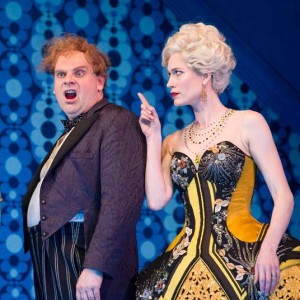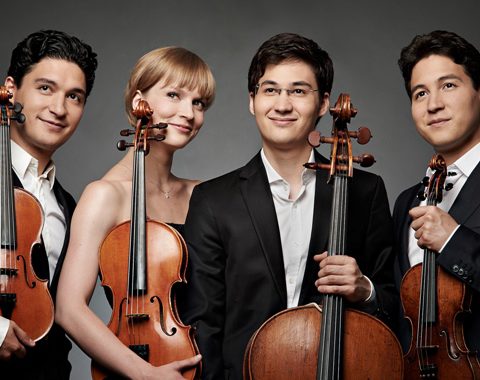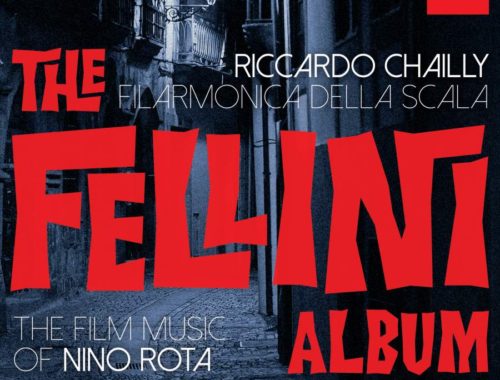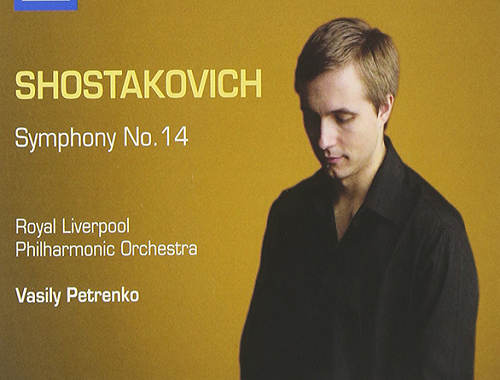Der Rosenkavalier, Glyndebourne Festival Opera
 You can count on Richard Jones for challenging our perceptions and turning expectation on its head but the image of the Marschallin rising Venus-like from her bath while showers of water rain down like gold dust on her post-coital nakedness is not exactly one that a century’s tradition of Der Rosenkavalier would recognise. In a touching pre-curtain speech Gus Christie paid tribute to the late Sir George Christie adding that he suspected “Dad” would rather have liked this production and would certainly have had something to say about it! After all, that opening image pretty much erases the line of succession in Marschallins from the opera’s inception to this point in time. In the lissom, youthful form of Kate Royal she is no longer the victim of privilege, of her social and marital status, but a glamorous and libidinous young woman who resists and challenges the chauvinistic inequalities of the times. In Richard Jones’ mind she’s one of those “Desperate Housewives” regardless of time or place.
You can count on Richard Jones for challenging our perceptions and turning expectation on its head but the image of the Marschallin rising Venus-like from her bath while showers of water rain down like gold dust on her post-coital nakedness is not exactly one that a century’s tradition of Der Rosenkavalier would recognise. In a touching pre-curtain speech Gus Christie paid tribute to the late Sir George Christie adding that he suspected “Dad” would rather have liked this production and would certainly have had something to say about it! After all, that opening image pretty much erases the line of succession in Marschallins from the opera’s inception to this point in time. In the lissom, youthful form of Kate Royal she is no longer the victim of privilege, of her social and marital status, but a glamorous and libidinous young woman who resists and challenges the chauvinistic inequalities of the times. In Richard Jones’ mind she’s one of those “Desperate Housewives” regardless of time or place.
And, of course, time and place are rendered indistinct and abstracted by the period mish-mash and riot of clashing colours in Paul Steinberg’s assertion of Jones’ visual “house style” where patterned wallpaper and outsized furniture distort all our preconceptions. Indeed when we arrive in the lobby of Faninal’s newly acquired residence the ostentatious water feature emblazoning his name in neon lights is pretty much of the here and now. Costumes (Nicky Gillibrand) allude to period (a 50s cocktail dress over a hooped skirt) but aren’t governed by them and often caricatured to the point of looking like they’ve been lifted from the pages of Alice’s Adventures in Wonderland.
It’s incredibly high-risk and clearly intended to wrong-foot us, to mess with our perceptions, to have us think again about what might be at the heart of this piece – but the visuals for me were less disconcerting than key elements in the casting. Only Kate Royal truly held her own, vocally (she’s sounding lovely) and dramatically, at the centre of things, asserting her sexuality and projecting an intelligent “knowingness” through her words. Her reasoning and philosophising rang so true in the latter part of the first act where the march of time and the inherent loneliness of her marriage once more begin to darken her mood. When she and Octavian are at opposite ends of the elongated sofa it is Siberia between them, a passing fancy, no future; on that same sofa the Marschallin curls up in the foetal position alone at the close of the act. A beautiful and moving moment.
In the light of all this I can see why Tara Erraught might have been cast as Octavian but with no thanks to the costume design he/she was always more effective as the lumpy “Mariandel”. The problem here was not just that Erraught did not by any stretch of the imagination cut a dashing chevalier-like figure but that the singing was more often than not loud and uningratiating with an intrusive beat in the voice. I guess Jones was going for a puppyish callow youth, better suited to the sweet, rather plain, Sophie than the sophisticated Marschallin. Jones pointedly shows us Sophie before and after her “big day” and Teodora Gheorghiu plays up to that beautifully. But it’s a very light, almost soubrette, voice and come the presentation of the rose and final trio she lacks vocal bloom, even in this house.
Lars Woldt’s Baron Ochs is again cast with an eye on his youth and arrives in Bavarian walking gear with a framed picture of his bride-to-be in his knapsack. From my seat in the circle not all the detail in his performance carried – it felt and sounded rather generalised, a little underripe. But having him poked in the backside by the stem of the silver rose – as opposed to Octavian’s sword – in act two was an hilariously apposite touch as was the removal of his wig along with his clothes in the inn scene.
Robin Ticciati’s debut as Glyndebourne’s music director quickly settled down after youthful impetuosity in the prelude had the London Philharmonic Orchestra seemingly chasing the tail of his tempo. A bit of a scramble in the opening pages. Thereafter there was much lovely playing and perceptive detail along the way but also a sense that things may need time to marinate.
In most productions of Der Rosenkavalier we leave the theatre convinced (indeed willing) that there will be a reconciliation between the Marschallin and Octavian, that theirs is indeed true love curtailed by the Marschallin’s age and circumstances. Not here. We know it is transitory. He will not be the last of her young lovers, that much is clear, and in the way that Jones sets up the infatuation of Mohammed, the page (Daniel Francis-Swaby), for his mistress suggests in the final moments of the opera that he may be next.


